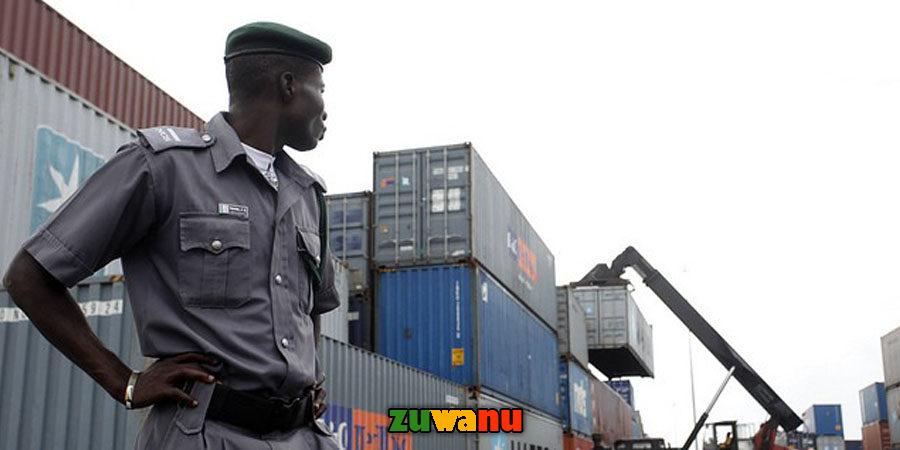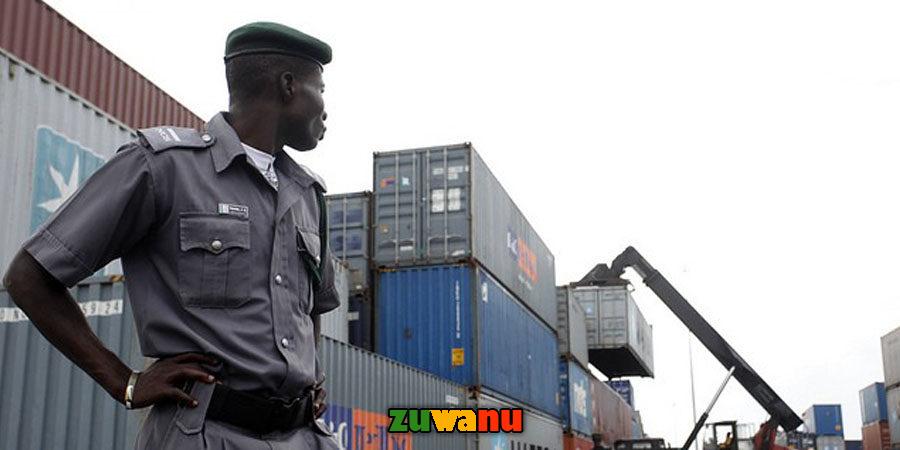Customs Services: Roles, Responsibilities, Pros, and Cons

Introduction
Customs services play a vital role in the global economy, serving as gatekeepers and facilitators of international trade. These agencies are responsible for regulating the flow of goods and services across international borders, ensuring compliance with national laws and international agreements. Customs authorities exist in nearly every country, and their work is indispensable in maintaining economic security and public safety. In this comprehensive article, we will explore the functions and responsibilities of customs services, focusing on their four main duties, and examine the advantages and disadvantages associated with their operations.
I. The Work of Customs Services
Customs services are government agencies that oversee the movement of goods and people across international borders. They serve as a critical interface between domestic economies and the global market. The primary objectives of customs services are as follows:
- Facilitating Trade: Customs services aim to expedite the movement of goods and services across borders by implementing efficient processes and reducing unnecessary bureaucratic hurdles. This involves the development of customs procedures, tariff schedules, and trade facilitation measures to streamline international trade.
- Ensuring Compliance: Customs authorities enforce import and export regulations, ensuring that goods entering or leaving a country adhere to national laws and international agreements. This involves assessing the correctness of declarations, determining customs duties, and verifying the legality of goods.
- Revenue Collection: Customs services play a pivotal role in collecting revenue for the government by imposing import duties, taxes, and fees on goods being imported. These revenues help finance various public services and infrastructure development.
- Protecting National Security: One of the most critical functions of customs services is safeguarding national security. They are responsible for preventing the illegal movement of goods, including drugs, weapons, counterfeit products, and potentially hazardous materials, across borders.
Let’s delve deeper into these four main responsibilities of customs services, exploring the pros and cons associated with each.
II. Customs Services’ Four Main Responsibilities
- Facilitating Trade
Facilitating international trade is one of the primary objectives of customs services. By implementing efficient processes and reducing trade barriers, customs authorities contribute to the growth and stability of a country’s economy. Here are the key responsibilities and the associated pros and cons of facilitating trade:
Pros:
a. Economic Growth: Streamlined trade processes and reduced barriers lead to increased trade volumes, which can boost a country’s economic growth and create job opportunities.
b. Cost Savings: Efficient customs procedures can result in cost savings for businesses and consumers, as delays and administrative burdens are minimized.
c. Enhanced Competitiveness: Simplified customs processes can make a country more attractive to foreign investors, encouraging them to establish businesses and create jobs, ultimately strengthening the nation’s competitiveness.
Cons:
a. Revenue Loss: In their efforts to expedite trade, customs services may forgo some tariff revenue, which could otherwise be collected through stricter import regulations.
b. Security Risks: Simplified trade processes might inadvertently allow contraband goods to enter the country more easily, posing risks to national security.
c. Disruption of Domestic Markets: Overly relaxed trade facilitation measures can result in a flood of cheap imported goods, harming local industries and markets.
- Ensuring Compliance
Customs services are responsible for ensuring that goods entering or leaving a country comply with national laws and international agreements. This involves verifying the accuracy of customs declarations, determining customs duties, and preventing the illegal movement of goods. Let’s explore the pros and cons of ensuring compliance:
Pros:
a. Legal Certainty: Ensuring compliance with customs regulations provides legal certainty for businesses and consumers, reducing the risk of disputes and non-compliance penalties.
b. Protection of Domestic Industries: By enforcing import restrictions and anti-dumping measures, customs services protect domestic industries from unfair competition.
c. Revenue Generation: Strict enforcement of customs duties and taxes contributes to government revenue, which can be used for public services and development projects.
Cons:
a. Administrative Burden: Stringent customs compliance measures can impose administrative burdens on businesses, leading to increased costs and potential delays in the movement of goods.
b. Smuggling and Illicit Trade: Despite efforts to ensure compliance, illegal goods can still be smuggled across borders, posing challenges to national security and public health.
c. Trade Disputes: Rigorous enforcement of customs regulations can sometimes lead to trade disputes between countries, causing tensions and economic disruptions.
- Revenue Collection
One of the primary functions of customs services is revenue collection. They impose import duties, taxes, and fees on goods entering a country, contributing to government revenues. Here are the pros and cons associated with customs revenue collection:
Pros:
a. Government Funding: Revenue collected by customs services is used to finance various government programs, services, and infrastructure development.
b. Tariff Protection: Import duties can provide a level of protection for domestic industries, helping them compete with foreign products.
c. Control of Trade Imbalances: Custom duties can be used to regulate trade imbalances by imposing tariffs on specific goods or countries to protect domestic industries.
Cons:
a. Increased Costs for Consumers: High import duties can lead to increased prices for imported goods, which can negatively affect consumers.
b. Trade Barriers: Excessive customs tariffs can act as trade barriers, discouraging international trade and potentially leading to retaliation by trading partners.
c. Smuggling and Evasion: High import duties may incentivize smuggling and tax evasion, depriving the government of the revenue it should collect.
- Protecting National Security
Safeguarding national security is perhaps the most critical responsibility of customs services. They are tasked with preventing the illegal movement of goods, including drugs, weapons, counterfeit products, and potentially hazardous materials, across borders. Here are the pros and cons of customs services’ role in protecting national security:
Pros:
a. Public Safety: Customs services’ efforts to prevent the movement of illegal and hazardous goods help protect public safety and health.
b. Counterterrorism: By monitoring and intercepting potentially dangerous materials, customs authorities contribute to counterterrorism efforts and the prevention of acts of violence.
c. Intellectual Property Protection: Customs services play a crucial role in protecting intellectual property rights by intercepting counterfeit and pirated goods.
Cons:
a. Resource Intensive: Protecting national security can be resource-intensive, requiring substantial investments in personnel and technology.
b. Delays in Trade: Rigorous security checks can lead to delays in the movement of legitimate goods, which can disrupt supply chains and increase costs.
c. Privacy Concerns: Intensive border security measures can raise concerns about individual privacy and civil liberties.
III. Pros and Cons of Customs Services
Customs services are vital for the functioning of the global economy, but like any governmental agency, they have their advantages and disadvantages. Let’s explore these in more detail:
Pros of Customs Services:
- Economic Growth: By facilitating international trade and ensuring compliance with customs regulations, customs services contribute to economic growth, job creation, and increased foreign investment.
- Government Revenue: Customs services generate significant revenue for governments through the collection of import duties, taxes, and fees. This revenue can be used to fund essential public services and infrastructure projects.
- Consumer Protection: Customs services help protect consumers from unsafe and counterfeit products by enforcing product quality and safety standards.
- Intellectual Property Protection: They play a crucial role in safeguarding intellectual property rights by intercepting counterfeit and pirated goods, protecting the interests of innovators and creators.
- National Security: Customs services are essential in preventing the illegal movement of dangerous and illicit goods, contributing to public safety, counterterrorism efforts, and law enforcement.
- Trade Regulation: They provide a mechanism for regulating international trade and imposing restrictions or tariffs on specific goods to protect domestic industries.
Cons of Customs Services:
- Administrative Burden: Strict customs compliance measures can impose an administrative burden on businesses, leading to increased costs, delays, and paperwork.
- Revenue Loss: In their efforts to facilitate trade, customs services may forgo some tariff revenue that could have been collected through stricter import regulations.
- Trade Disputes: Rigorous enforcement of customs regulations can lead to trade disputes between countries, causing tensions and economic disruptions.
- Consumer Price Increase: High import duties can result in increased prices for imported goods, which can negatively affect consumers.
- Resource Intensive: Protecting national security through customs services can be resource-intensive, requiring substantial investments in personnel and technology.
- Privacy Concerns: Intensive border security measures can raise concerns about individual privacy and civil liberties.
Conclusion
Customs services are indispensable institutions that play a crucial role in regulating the flow of goods and people across international borders. Their primary responsibilities include facilitating trade, ensuring compliance with customs regulations, collecting revenue for governments, and protecting national security. Each of these roles has its pros and cons, which must be carefully balanced to achieve the objectives of customs services while minimizing their negative impacts.
In a globalized world where international trade is a cornerstone of economic prosperity, customs services are essential for maintaining the integrity of national borders, ensuring fair competition, and safeguarding public safety. However, they must also evolve and adapt to changing economic and security landscapes, striking a delicate balance between trade facilitation and security concerns.
The future of customs services will likely involve increased automation and digitalization to expedite trade while enhancing security measures to protect against emerging threats. As the world continues to evolve, customs services will remain a critical component of the international trade ecosystem, working to maintain economic security, public safety, and the integrity of national borders.


Leave a Comment